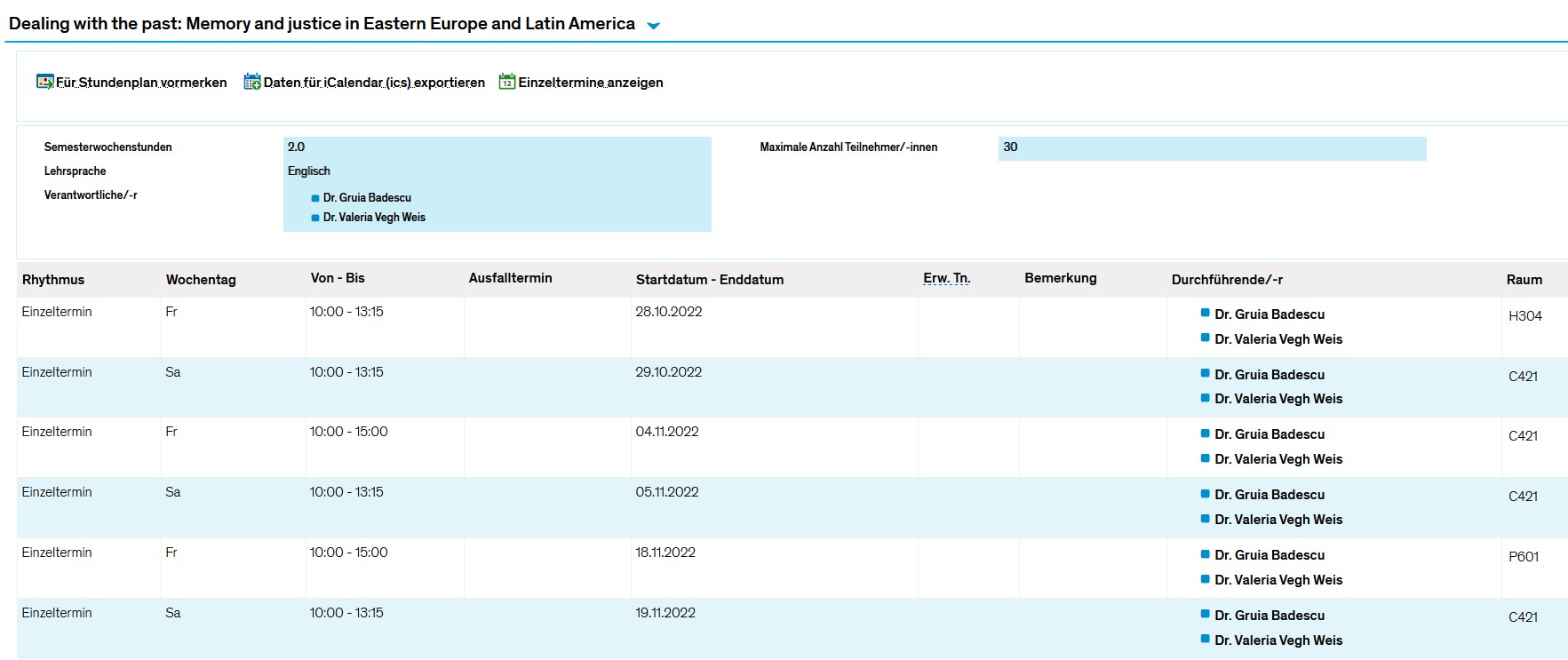Cuerpo, lenguaje, feminismo decolonial: la obra de Patricia de Souza
Speaker:
Dra. Romina Palacios, Dra. Sandra Rudman
Universität Konstanz


Gruia Badescu and Valeria Vegh Weis will be offering a course in English this winter semester that deals with Latin American memory and justice, in dialogue and comparison with Eastern Europe. It will take place on Fridays and Saturdays in WS in late October and November (with essay deadlines at the end of the actual semester)
How do societies deal with legacies of dictatorship and political violence? This course explores this question by discussing justice and memory practices in two regions of the world which underwent transitions to democracy at the end of the twentieth century: the Southern Cone of Latin America and Central and Eastern Europe. The 1980s saw the end of military dictatorships in Argentina, Uruguay, Chile and Brazil, while 1989 witnessed the fall of communist regimes in most of Central and Eastern Europe, with the Soviet Union breaking up in 1991. These regimes were placed on opposite sides during the Cold War, yet they shared forms of political repression, secret police apparatus, political violence and persecution of opponents/dissidents. Remembrance about these period has been long divided between those actors who emphasized the crimes perpetrated and those who highlighted modernization and development. After discussing the features of these authoritarian regimes and the transitions to democracy, this course will discuss the legal frameworks at the domestic and international level as well as the broad range of practices and mechanisms used in the process of dealing with the past. The latter include, among others, trials, truth commissions, historians´ reports, forensics, memorials, reparations programs and memory museums. Furthermore, the course will explore the different ways in which various actors worked to bring perpetrators to justice, including activism and memory work. They include victim-led justice processes and intergenerational memory, as well as the creation of antagonistic and competing memories and historiographies. Overall, this interdisciplinary course bridges history, law and social sciences to provide an understanding of transitional justice and memory processes in the two regions under study. The course will include lectures, class debates, film viewing and a possible trip. Participants will be evaluated on the basis of course participation, one oral presentation (3ECTS) and an additional paper (6ECTS).
Please only register for those courses you really want to attend and cancel your registration with your lecturer quickly if you change your mind! Registrations are possible from 10.10.2022 to 19.10.2022 (12 noon).
Places are limited due to room capacities and will be allocated according to the time of registration (ZEuS status “ZU"). If the maximum number of participants is exceeded, you will receive a place on the waiting list (ZEuS status “WL"). If participants cancel their registration, the lecturer will admit new participants from the waiting list. It is always the lecturer deciding on the final allocation of places.